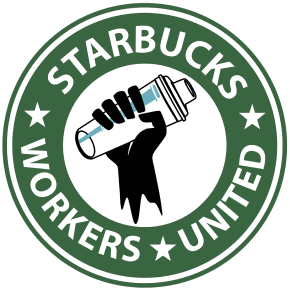Upcoming Events 🗓
Join us for a special EWOC volunteer call this Sunday, April 3 at 5 p.m. ET, to hear how you can help workers across the country to organize their workplaces. We’ll discuss several external and internal organizing roles you can take on and share how to get started! Register for the call here.
The Labor Notes Conference is the largest gathering of union troublemakers around, and EWOC wants you to be a part of it. Let us know if you’re planning to attend by filling out this form. The conference is June 17–19, 2022, in Chicago. The Labor Notes Conference is a great opportunity to build relationships with other rank and file labor activists and unions and attend educational and informative panels. We’re looking forward to seeing you there!

Americans are political citizens, and we know our political rights, such as the right to vote and the right to free speech. But we are also workers, and we have workplace rights. Unfortunately, many of us aren’t familiar with these rights. And that’s a shame: Our workplace rights offer us considerable scope to pressure employers into treating us with dignity and respect, including through speaking out and taking collective action to solve problems at work. Part of EWOC’s mission is to help workers change their lives for the better by providing education on what these rights are and how to wield them with power and precision.
The right to engage in concerted activity was won through decades of militant labor organizing and was codified in 1935 with the National Labor Relations Act (NLRA). Concerted activity is any activity in which two or more workers discuss workplace issues or take collective action to pressure their employer into addressing those issues, such as by conceding workplace improvements and wage demands. Common ways that workers can exercise their right to concerted activity include discussing working conditions with your coworkers, circulating a petition for improvements or union representation, addressing your boss with your concerns, reporting your concerns to a government agency, addressing the media with your concerns, and collectively refusing to work. Under the NLRA, it is illegal for your boss to interfere with any of these activities.
The right to concerted activity does have some limits. You can lose protection by saying things about your employer that are egregiously offensive or knowingly and maliciously false or by publicly disparaging your employer’s products or services without relating your complaints to any labor controversy. So if you want to leverage your right to organize, you should know how to make the biggest impact with your co-workers, how to minimize the risk of illegal retaliation (as well as how to secure justice if this does occur) and how to deal with the limits of this right. To learn how to do this with your co-workers and to receive support when you do it, contact one of our organizers today!
World of Work 🌍
US: Starbucks has contracted legal services from Littler Mendelson, one of the largest and most notorious union-busting law firms in the country.
TN: A majority of the staff at the historic Highlander Research and Education Center based in New Market, Tenn., have formed a union with Workers United Southern Region, SEIU.
MN: After nearly three weeks of striking, Minneapolis Federation of Teachers have ratified a new agreement. The agreement includes some important wins, such as wage increases and exemptions from the layoff process.
New From Our Blog 📧
Want to know more about what kind of actions are protected concerted activity? Check out organizer Natalie Robbins’ recent post about it on the EWOC blog.
Week in Labor History 📚
March 28, 1968: Martin Luther King, Jr., leads a march of striking sanitation workers, members of AFSCME Local 1733, in Memphis, Tenn. Violence during the march persuades him to return the following week to Memphis, where he was assassinated.
Solidarity,
Team EWOC




